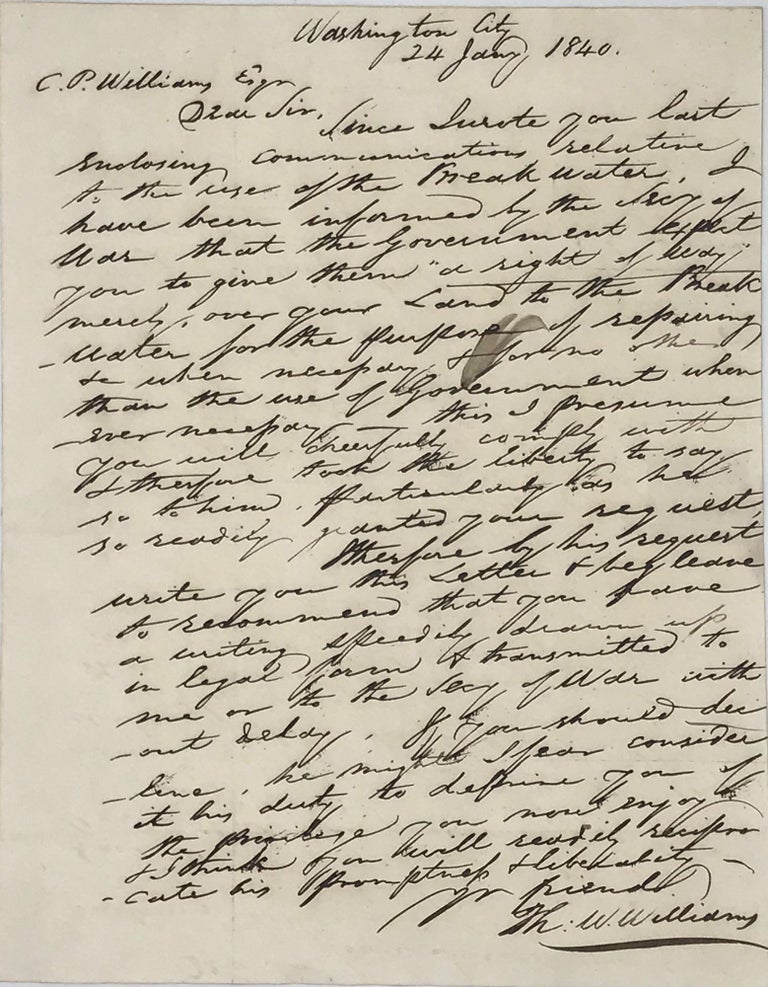
To CHARLES PHELPS WILLIAMS, Stonington, Connecticut.
Washington City: 1840. Autograph letter signed "Your friend. Th. W. Williams". One sheet, folded to 26 x 20 cm., one page letter, approx. 130 words, [2] blank, and addressed on fourth page, free frank. Postmark, Washington City, 24 Jan'y, 1840. Ink strong and readable. The Hon.Thomas W. Williams advises Charles P. Williams that the government expects that he will give them a right of way over his land to a breakwater. "I presume you will cheerfully comply... and therefore took the liberty to say so to him, particularly as he so readily granted your request". "He" appears to be the Secretary of War Joel R. Poinsett. "If you should decline he might I fear consider it his duty to deprive you of the privilege you now enjoy & I think you will readily reciprocate his promptness and liberality." It is uncertain as to why Poinsett needed a right of way on Williams's land (to get to what port?), but as Secretary of War under Van Buren (1837-1841), Poinsett spearheaded a number of bloody Indian campaigns and forced resettlements in the South. Thomas Wheeler Williams (1789-1874), a U.S. representative (1839-43) from Connecticut was born in Stonington. For about eight years he was engaged in the shipping business and later became a prominent figure in the whaling business out of New London. He likely knew Charles P. Williams (1804-1879) who was a prominent ship owner and businessman in Stonington during much of the nineteenth century. By 1825 he was a ship master, but soon thereafter invested in the Stonington sealing industry, which was to provide the foundation for his subsequent fortune. The 1840s found Williams in the whaling business, and during this period he was recognized as being one of the largest whaling ship owners in New England. He also had land investments in South Carolina and Georgia so the request might have had to do with property he owned there rather than in New London. He left an estate of three million at his death in 1879. Future research might uncover the nature of the "privileges" that Poinsett had been granting to Williams. Item #67639
Price: $275.00
